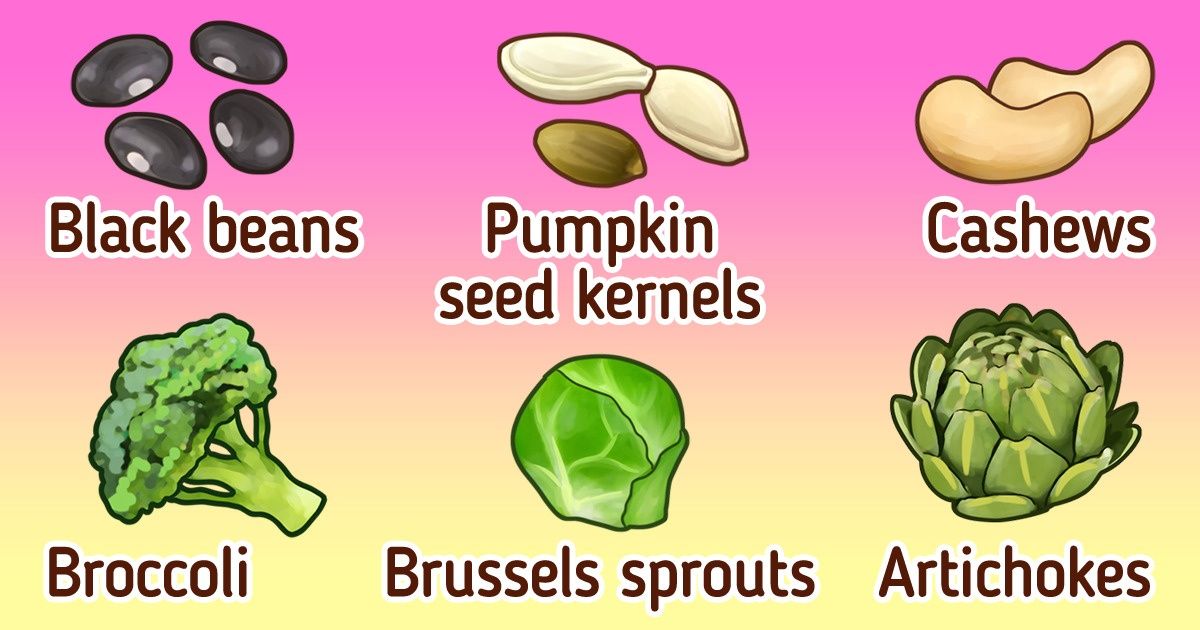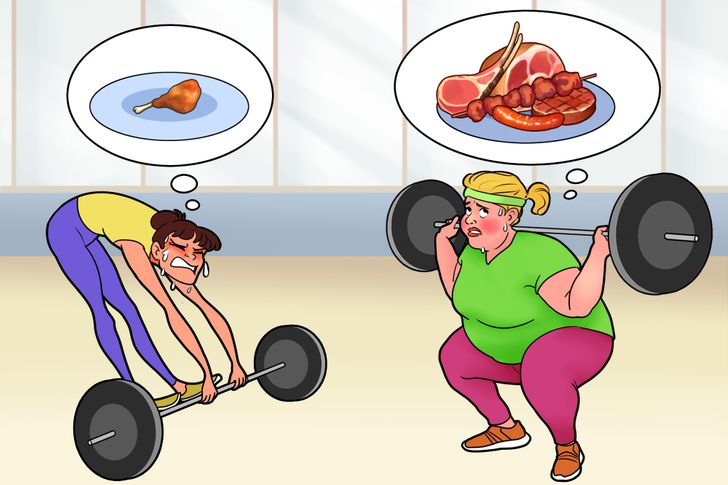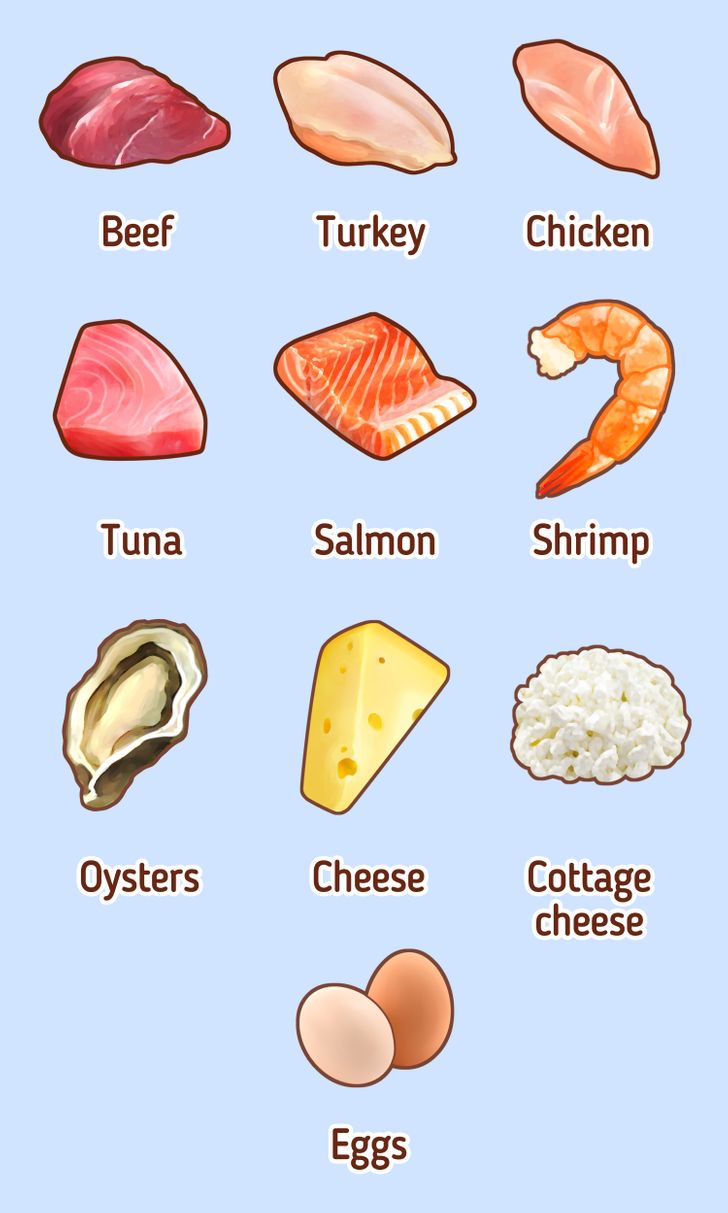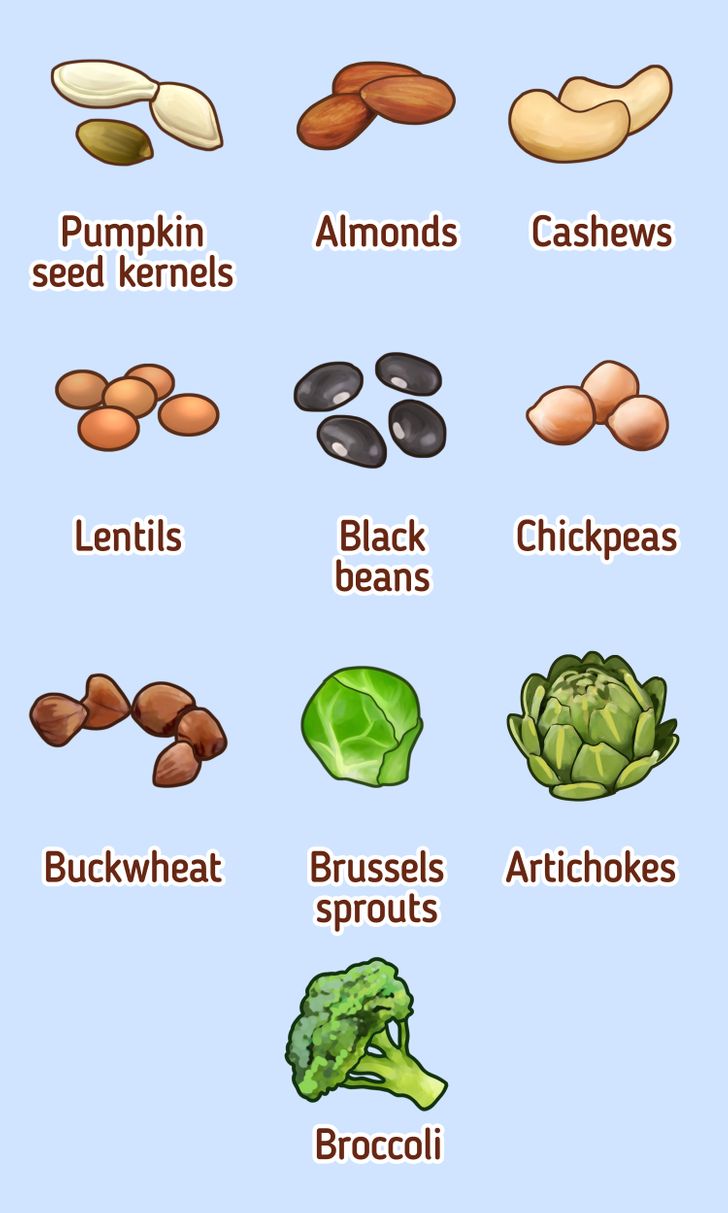
What Foods Contain Protein
The human body needs protein to stay healthy because it contributes to important processes like the production of antibodies that fight off infections, the transportation of oxygen, the creation of new cells, and so on. Unfortunately, it’s not always easy to include the necessary amount of protein in your diet.
At 5-Minute Crafts, we decided to make a guide of foods that contain a relatively high amount of protein. This guide has foods with animal proteins and plant-based proteins so it will be useful for people who have a different approach to their diet.
How to calculate how much protein you need

Just like everything else in life, you have to maintain a balance with your diet. If you don’t consume enough protein, your body may experience a deficiency that leads, for example, to muscle loss. Too much protein isn’t good either: the right amount of protein will help you build muscle, while an excess of protein will be stored as fat.
Each person can calculate how much protein they need to eat daily. To do this, you can use a protein calculator. Most often, you need to indicate gender, age, height, and weight, as well as the amount of physical activity per day. If you are trying to lose weight, your dietitian will tell you the exact amount of protein your body needs.
How animal and plant-based proteins are different

According to various sources, the human body is designed in such a way that it can’t synthesize from 8 to 10 so-called essential amino acids: valine, isoleucine, leucine, lysine, methionine, threonine, tryptophan, phenylalanine, and sometimes histidine and arginine. It’s believed that the diet should include proteins that contain all the essential amino acids.
Many animal-based foods are a source of protein:
- fish
- bird eggs
- milk
- cheese
- red meat, like beef
- chicken
- turkey
- quail
- bison, deer, wild boar, hare, and horse meat
The following plant-based foods are a good source of protein too:
- quinoa
- buckwheat
- soybeans
People who, for some reason, can’t eat meat should make sure that they eat foods that contain all the essential amino acids.
When planning your diet, you should remember that different foods, whether they are animal-based or plant-based, have a completely different composition, which, of course, you should also keep in mind. Often, plant-based foods lack certain components and vice versa.
Animal proteins

Meet
- Beef — lean tenderloin contains 22.2 g of protein and 158 cal per 100 g.
- Pork — lean tenderloin contains 20.6 g of protein and 120 cal per 100 g.
- Lamb — lean tenderloin contains 20.4 g of protein and 120 cal per 100 g.
- Veal contains 18.6 g of protein and 197 cal per 100 g.
Poultry
- Turkey breast contains 23.7 g of protein and 114 cal per 100 g.
- Goose contains 22.8 g of protein and 161 cal per 100 g.
- Chicken. For comparison, chicken breast contains 22.5 g of protein per 100 g, and a chicken drumstick contains 19.4 g of protein per 100 g. At the same time, white meat contains 120 cal, and dark meat contains 116 cal per 100 g.
- Duck is higher in calories than chicken, but not by much. Duck meat contains 18.3 g of protein and 135 cal per 100 g.
Fish
- Tuna — 23.3 g of protein and 144 cal per 100 g.
- Salmon — 20.1 g of protein and 120 cal per 100 g.
- Halibut — 14.4 g of protein and 186 cal per 100 g.
Seafood
- Oysters — 21.6 g of protein and 125 cal per 100 g.
- Shrimps — 20.1 g of protein and 85 cal per 100 g.
- Red king crab — 18.3 g of protein and 84 cal per 100 g.
- Lobsters — 16.5 g of protein and 77 cal per 100 g.
- Mussels — 11.9 g of protein and 86 cal per 100 g.
- Scallops — 12.1 g of protein and 69 cal per 100 g.
Dairy products and eggs
- Parmesan cheese — 29.6 g of protein and 420 cal per 100 g.
- Chicken egg — 12.4 g of protein and 143 cal per 100 g.
- Cottage cheese, 2% milkfat — 11 g of protein and 82 cal per 100 g.
- Greek yogurt — 10.3 g of protein and 59 cal per 100 g.
- Whole milk, 3.25% milkfat, contains 3.15 g of protein and 61 cal per 100 g.
Plant-based proteins

Nuts and seeds
- Pumpkin seed kernels — 30.2 g of protein and 559 cal per 100 g.
- Dried sunflower seeds — 20.8 g of protein and 584 cal per 100 g.
- Roasted, salted almonds — 20.4 g of protein and 667 cal per 100 g.
- Cashews — 18.2 g of protein and 553 cal per 100 g.
- Sesame seeds — 17.7 of protein and 573 cal per 100 g.
- Walnuts — 15.2 g of protein and 654 cal per 100 g.
- Hazelnuts — 15 g of protein and 628 cal per 100 g.
- Pine nuts — 13.7 g of protein and 673 cal per 100 g.
- Macadamia nuts — only 7.91 g of protein and 718 cal per 100 g.
Legumes
- Lentils — 24.6 g of protein and 352 cal per 100 g.
- Black beans — 21.6 g of protein and 341 cal per 100 g.
- Chickpeas — 20.5 g of protein and 378 cal per 100 g.
- Lima beans — 6.84 g of protein and 113 cal per 100 g.
- Green peas — 5.42 g of protein and 81 cal per 100 g
- Corn — 3.27 g of protein and 86 cal per 100 g.
Vegetables, fruits, grains, greenery, seaweed
- Quinoa — 14.1 g of protein and 368 cal per 100 g.
- Buckwheat — 13.2 g of protein and 343 cal per 100 g.
- Oat cereals — 13.2 g of protein and 379 cal per 100 g.
- Spirulina — 5.92 g of protein and 26 cal per 100 g.
- Brussels sprouts — 3.38 g of protein and 43 cal per 100 g.
- Artichokes — 3.27 g of protein and 47 cal per 100 g.
- Broccoli — 2.82 g of protein and 34 cal per 100 g.
- Raw potatoes in the skin — 2.57 g of protein and 58 cal per 100 g.
- Guava — 2.55 g of protein and 68 cal per 100 g.
- Watercress — 2.3 g of protein and just 11 cal per 100 g.
- Asparagus — 2.2 g of protein and 20 cal per 100 g.
- Avocado — 2 g of protein and 160 cal per 100 g.
- Cauliflower — 1.92 g of protein and 25 cal per 100 g.